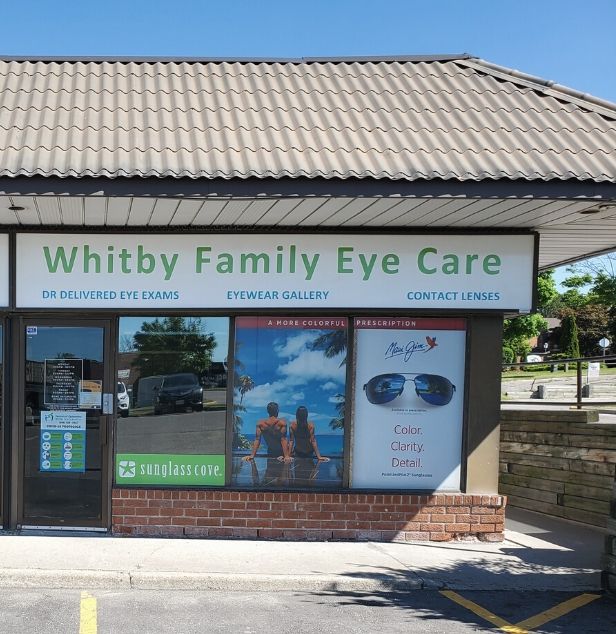Dry eyes can cause significant discomfort and disrupt daily activities like reading, driving, or enjoying a good movie. Often described as a stinging, burning sensation or a feeling of something gritty in the eyes, dry eye syndrome can lead to vision problems if left unaddressed.
One way to treat dry eyes is through eye drops. Over-the-counter (OTC) eye drops, also known as artificial tears, primarily provide temporary relief from the discomfort of dry eyes by supplementing the natural tear layer. Prescription eye drops are typically recommended for severe or chronic dry eye conditions that persist despite the usage of OTC solutions.
Understanding Dry Eyes
Dry eye syndrome is a condition where the eyes do not produce the necessary quantity or quality of tears for adequate lubrication or produce poor-quality tears. This results in eyes that feel dry, irritated, and uncomfortable. Various triggers can cause dry eyes, ranging from environmental factors like dry, dusty air or constant exposure to screens, to underlying health conditions such as rheumatoid arthritis and Sjogren’s syndrome.
The symptoms of dry eyes can vary but commonly include a stinging or burning sensation, red eyes, heavy eyelids, and occasionally blurred vision. Some people might experience a paradoxical symptom of watery eyes as the eye responds to dryness by producing an overflow of tears.
Despite the discomfort, many people often dismiss dry eyes as a minor annoyance. However, if left untreated, the condition can lead to more serious eye problems, including damage to the surface of the eyes and an increased risk of infections. Therefore, it’s crucial to seek professional help if symptoms persist. Your optometrist can provide a thorough examination, diagnose dry eye syndrome, and offer treatment options, such as prescription eye drops.
Over-the-Counter vs. Prescription Eye Drops
Over-the-counter (OTC) eye drops and prescription eye drops both serve to alleviate the symptoms of dry eye syndrome but differ considerably in their composition and potency.
OTC eye drops, also known as artificial tears, primarily provide temporary relief from the discomfort of dry eyes by supplementing the natural tear layer. They are generally safe for daily use and are convenient for mild cases of dry eyes or for situations where dry eyes are induced by specific circumstances, such as exposure to screens or air conditioning.
On the other hand, prescription eye drops are typically recommended for severe or chronic dry eye conditions that persist despite the usage of OTC solutions. These eye drops often contain active ingredients to help tackle the root cause of the dryness by either reducing inflammation that disrupts tear production or encouraging the eyes to produce more natural tears.
It’s important to remember that these should be used under medical supervision, as they can have side effects and interactions with other medications.
Prescription eye drops offer benefits, such as targeted relief and long-lasting effects. They are formulated specifically to address the underlying issues causing dry eye syndrome rather than merely alleviating the symptoms.
This targeted approach often leads to more noticeable improvement and long-lasting relief. Furthermore, because prescription eye drops are administered under the guidance of an eye care professional, the treatment can be adjusted and fine-tuned to cater to the patient’s changing needs.
How Prescription Eye Drops Work
There are multiple types of prescription eye drops available, each designed to address different causes of dry eye syndrome.
Artificial tear eye drops emulate the lubricating properties of natural tears, replenishing the moisture level in the eye and providing immediate relief from dryness. They are typically recommended for mild to moderate dry eye symptoms.
Anti-inflammatory eye drops, such as steroids, target the inflammation that often accompanies severe dry eye conditions. By reducing inflammation, these drops can restore the normal functioning of the tear glands and promote natural tear production.
Cyclosporine-based eye drops work by suppressing the immune response that can lead to inflammation and disrupt tear production. Regular use of these drops can improve tear production and alleviate dry eye symptoms.
While prescription eye drops are typically safe for use under medical supervision, they may have potential side effects. These can include temporary blurred vision, eye discomfort or redness, or, in rare cases, increased eye pressure. As such, it’s important to discuss any potential risks and benefits with your eye care professional before starting a new medication regimen.

The Importance of Professional Guidance
Securing a comprehensive eye examination by a qualified optometrist is crucial when dealing with dry eyes. This professional assessment allows the optometrist to accurately gauge the severity of the dry eye symptoms, thereby enabling a precise determination of the most suitable prescription eye drop treatment. A tailored approach is essential as each patient’s eye condition is unique and requires a personalized solution. The Doctors at Whitby Family Eye Care understand that managing dry eyes is not a one-size-fits-all process. We can provide each patient with a customized treatment strategy to address dry eyes. Request an appointment today to learn more.







